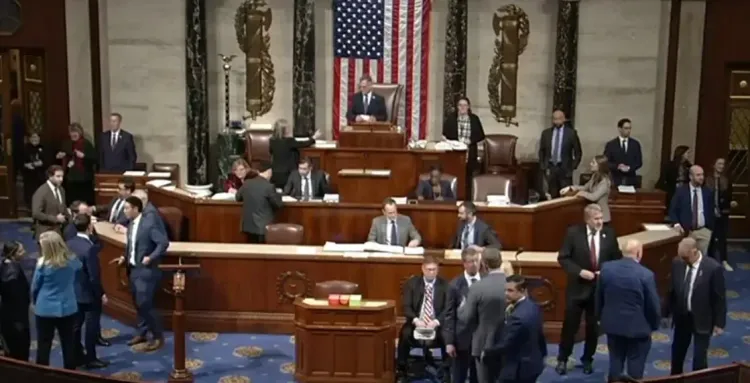US House Approves Government Funding Plan

Washington, Dec 21 (NationPress) The US House of Representatives has successfully passed a funding bill on Friday to ensure the federal government remains functional until mid-March, just moments before the imminent shutdown deadline at midnight on Saturday.
The proposed bill now awaits Senate approval before it can be sent to President Joe Biden for his endorsement.
This House-approved legislation did not include a provision requested by President-elect Donald Trump to prolong the national debt ceiling, which pertains to previously approved expenses rather than new allocations. This omission incited a backlash from staunch conservative Republican lawmakers, with 38 opposing an earlier version of the bill on Thursday, which ultimately led to its failure alongside Democratic votes.
On Friday, the measure passed with a significant majority of 366 votes in favor, including all Democrats and 34 Republicans who also supported it.
Following the conclusion of the fiscal year on September 30, Congress enacted a measure to fund the federal government for three months, which was set to expire at 12:01 am Saturday, threatening a government shutdown.
The US faced the potential of a shutdown after President-elect Trump and billionaire Elon Musk, a close associate, opposed a bipartisan spending bill designed to fund the government until mid-March, citing objections to certain spending provisions included by Democrats. Trump also insisted on extending the debt ceiling.
In response, Speaker Mike Johnson was compelled to retract the initial legislation and propose a new plan, which was discussed and voted on Thursday. This attempt failed dramatically, garnering only 174 votes in favor against 235 opposed, with 38 Republican lawmakers rebelling alongside all Democrats, showcasing a clear dissent against the president-elect.
A government shutdown would have led to most federal services being halted; however, exemptions would be made for “essential” services such as law enforcement and air traffic control, as well as fee-funded operations like visa services from the State Department and select functions of the Citizenship and Immigration department.
While essential service employees will not receive pay until a spending bill is passed by Congress, other federal workers will be required to remain at home without compensation.










